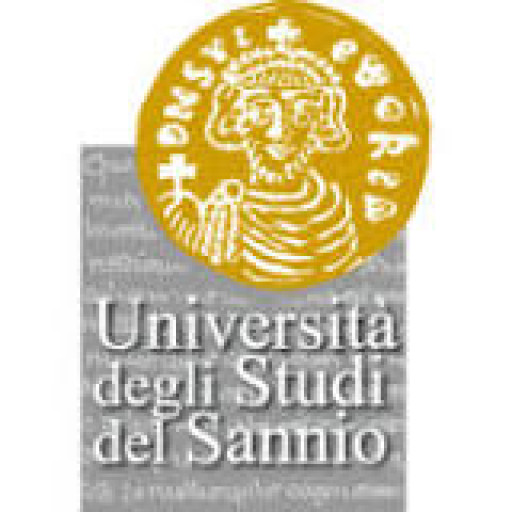Photos of university / #kieluni
Biological Oceanography at Kiel University offers a comprehensive and interdisciplinary study program that prepares students to understand the complex and dynamic processes occurring in the world’s oceans. This program focuses on the biological aspects of marine systems, emphasizing the interactions between marine organisms and their environment, along with ecological, physiological, and evolutionary processes. Students will acquire a solid grounding in marine biology, oceanography, ecology, and related sciences, enabling them to analyze biological phenomena in marine settings and contribute to sustainable management and conservation of marine resources. The curriculum combines theoretical coursework with practical laboratory and field work, providing hands-on experience in marine sampling, data analysis, and research methodologies. Students will have opportunities to participate in field trips, laboratory experiments, and research projects that enhance their understanding of oceanic ecosystems, biotic interactions, and the impacts of human activities on marine environments. The program also covers advanced topics such as marine biodiversity, marine biotechnology, climate change effects on oceans, and marine ecosystem modeling. Graduates of the Biological Oceanography program will be well-equipped for careers in research institutions, environmental agencies, marine industries, and conservation organizations. They will possess the skills necessary to conduct independent scientific research, interpret complex marine data, and contribute valuable insights to the stewardship of our oceans. The program promotes an international and interdisciplinary approach, encouraging students to engage with global challenges related to marine sustainability and ocean health. With extensive teaching and research infrastructure at Kiel University, students will benefit from close interactions with faculty experts and access to state-of-the-art laboratories and research vessels. This program thus prepares students for diverse careers in academia, industry, or public policy, all dedicated to understanding and protecting the vital ecosystems of our planet’s oceans.
Educational organisation
In the first semester, students are given a basic understanding of the major oceanographic disciplines, taking compulsory introductory courses in biological, physical and chemical oceanography, and marine geology. A further course entitled "Doing Science" introduces basic scientific principles and prepares the ground for conducting independent research and training in critical scientific reasoning.In the second semester, students are expected to orient themselves in two of the three major working groups in biological oceanography (marine ecology/biological oceanography/fish ecology) with a view to focusing their area of interest and gaining in-depth knowledge as well as practical experience in the laboratory. Compulsory courses in biological modelling and statistics are taken and students have the opportunity to broaden their scope by choosing courses worth five credit points from any department at the university.
By the third semester, students will have focused their academic interest in a research group. They will acquire skills needed to conduct independent research for their theses, and will write a thesis proposal. In this semester, students can also broaden their scope and explore career opportunities through internships.
The fourth semester is devoted to practical research and will culminate in the submission of a written thesis.
The course is based on the European Credit Transfer System (ECTS) following the Bologna declaration. The MSc programme requires 120 ECTS of which 30 credits are awarded for a Master's thesis.
Internships
Opportunities for internships are offered during the programme.Forms of assessment
Each module is tested through written or oral examinations or submission of papers.Course objectives
We aim to equip you to be able to continue basic research, conduct environmental management and guide policy, or enter into other maritime professions. To this end, you will also learn and apply basic skills, including scientific communication and research planning, and gain insights into possible career options through an internship outside the university.Language requirements
Fluency in written and spoken EnglishAcademic requirements
Entry to the programme requires a completed Bachelor's degree with a biological focus; equivalent degrees from other countries (with a major focus on biological disciplines) will be accepted.Enrolment fees
An enrolment fee ("Einschreibegebühr") currently amounting to 55 EUR is charged for the first enrolment at Kiel University.A semester contribution ("Semesterbeitrag") currently amounting to approx. 120 EUR must be paid each semester. This covers free public transport ("Semesterticket"), reduced lunch prices, and other financial benefits for students.
For the latest information, see: www.studium.uni-kiel.de/de/studium-organisieren/studienangelegenheiten/rueckmeldung
Costs of living
Monthly expenses in Kiel (e.g., for housing, food) range between 700-800 EUR, depending on individual needs.Arrival support
The International Center at Kiel University offers a wide range of services and will support international students with any questions related to a successful arrival in Kiel.See: http://www.international.uni-kiel.de/en
Services and support for international students
The International Center at Kiel University offers a wide range of services.See: http://www.international.uni-kiel.de/en
Accommodation
Accommodation in Kiel is available through the office for student affairs ("Studentenwerk Schleswig-Holstein") or on the private market. Looking for a place to stay in a foreign country is not always easy. The office for student affairs supports students seeking accommodation at reasonable prices and is continually improving the quality and standard of the residence halls.In general, the chances of obtaining a room in a residence hall can be improved by submitting an application form before 15 June. The rent depends on the location and standard of the particular residence.
Please note that due to high demands for accommodation in Kiel, the office for student affairs can currently only assign rooms in residence halls to first-semester students (Bachelor's/Master's students). PhD students cannot be assigned rooms.
For information and to contact us, see: http://www.studentenwerk.sh










